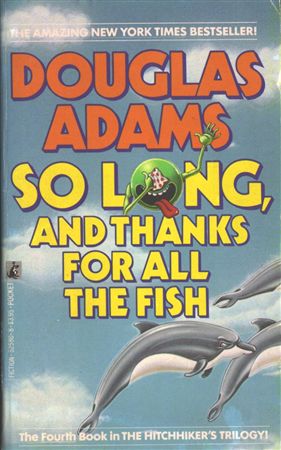Attitude adjustment: Facing our ecological predicamentAfter a talk I gave last year on food and energy, one audience member remarked that it seemed to him that we face challenges so daunting that little can be done to stop a worldwide collapse of civilization. "What is the point in trying?" he seemed to be asking. As I prepare for guest lectures on peak oil and the consequences of overshoot at a local college this week, I'm asking myself: Is that person's attitude really all that unreasonable?Respected peak oil philosopher
Kurt Cobb directs his essay from this point to survey a few of the conventional scenarios, finally pointing out correctly:
And, yet the approach which is hardest to sell seems like the safest. It relies on the concrete, concerted actions of people everywhere doing things that require no miracles of technology, no rosy assumptions about the future availability of critical resources, and only limited faith in the marketplace(…)The original rhetorical question, “What is the point of trying?” may be answered in a different way.
There is certainly a point in trying to solve our ecological problems. Whether we humans do, or do not succeed, is hardly “the” point.
If humanity has already FUBAR'd so badly that despite our best efforts, our current global culture is screwed, it is still reasonable that a small population of humans will exist through the crisis point and beyond. Culture and perhaps morphology thus vectored away from the current path of cheeto enriched decadence.
This is known as the “
die off” scenario. A bit of a hubbub and to-do has arisen over this eventuality actualizing in the short term. A handful of witless commentators have in the past blamed peak oil types for pointing out the negative scenario in the first place.
If a doctor tells one to cut out smoking or face the likelihood of delitorious health issues, it isn’t the doctor’s fault when cancer develops. It might be their fault if they didn’t provide an adequate prescription to address a very real physical addiction. Sadists don’t make good doctors, and those among us who might revel in the bloody possibilities of the coming years are obviously on a dead end track.
Be that as it may,
people are mortal, and historically, civilizations are too. Fetishizing our current state of affairs as permanent is ridiculous, and hardly desirable at that. If the vaunted tar sands of Canada are to double in output,
a river must disappear completely into Hades.
Frankly, there is something to be said for the
Glum Olde Plague Years, at least in the eyes of our successors. Consider the results of the
Black Death. Traumatic for a culture to have so many die before their time, although people dying early is not at all unheard of, only the increased incidence of same.
The Renaissance flowered in the wake of the death and suffering, an echo of the fabled phoenix. The medieval period had ended.
We exist today in a state of
technocratic medievalism. Short term fixes are plastered onto our pollution riddled populations to achieve festering goals. Bigger cars. Pharma for all, strictly meted out by government. Bigger boats, with bigger nets, for fewer fish.
More population, to increase the share of the pie of those who laid in their claims early, by virtue of having been born first, into a society that worships property values.
Blast property values, and exponentially increasing populations too.
It is time for a Renaissance. Spaceship Earth, Gaia, the Ecosphere, the Commons - - in trouble by any name. Is a dreadful, festering death afflicting billions the only thing that can spur a Renaissance? Hardly, yet with or without it we are all fated to suffer our mortality in due course.
Face up to your monkey butt. Face up to the patterns of witless consumption that are choking and subdividing this planet. With a little more work, the third rock out from Sol could become as interesting as the surface of Luna. The opinions of a few mangy peakniks count for little in the grand scheme of things.
The actions of the many are enacting a final vote, a tyranny of the energy-rich majority.
If the die off comes, so be it. I guarantee a flower will grow out of the turd.
Evolution happens.








